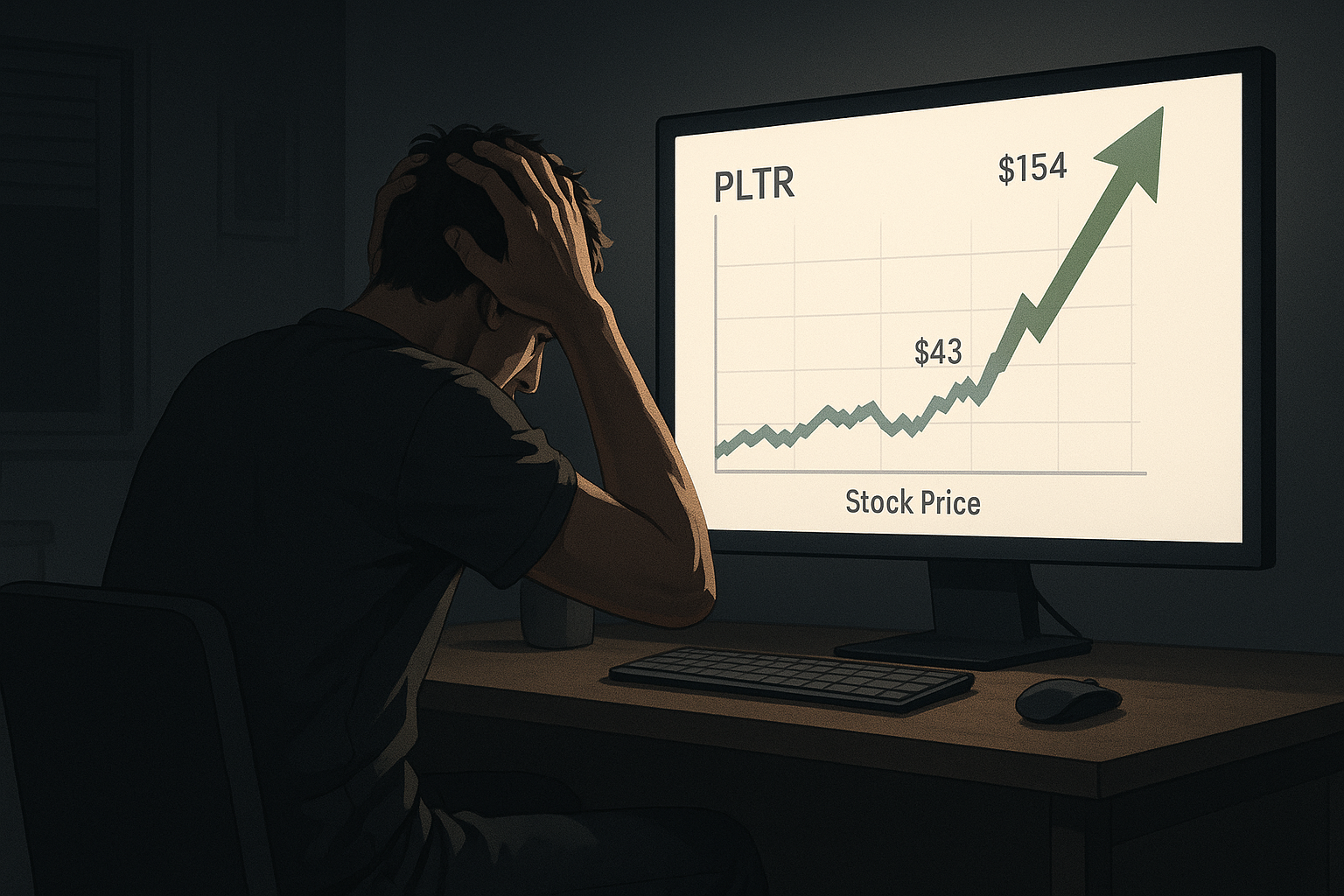We've all been there—staring at a stock chart, watching in horror as a company we once owned skyrockets after we sold. It's financial torture of the highest order.
For you, it's Palantir. You cashed out at $43, feeling pretty smart about your 53% gain. Now it's sitting at $154, and you're left doing that special kind of math we investors perform in our darkest moments—the "what if" calculations that serve absolutely no purpose except to ruin perfectly good evenings.
I've spent fifteen years covering investment psychology, and let me tell you—this particular brand of regret is universal. I've interviewed billionaire hedge fund managers who still lament selling Amazon in the early 2000s. The zeros just get bigger, but the feeling remains the same.
The Timing Trap
Here's what nobody tells beginning investors: perfect timing isn't just difficult—it's mythological.
Wall Street legends? Those financial gurus you follow? They're not timing wizards. (Well, except maybe Jim Simons, but he's using quantum physics or sorcery or something.) The rest are playing probability games with incomplete information, just like you were when you looked at Palantir's eye-watering P/E ratio and decided to take profits.
Look, hindsight makes geniuses of us all. But investing decisions can only be judged based on the information available at the time. And by that measure, a 53% gain isn't just good—it's downright impressive. The S&P historically returns about 10% annually, and you quintupled that.
The Mathematics of Mental Torture
So let's talk actual numbers, shall we? Had you held those PLTR shares, your $11,000 gain would now be approximately $60,500. That's a $49,500 difference.
Is that enough to sting? Absolutely.
But these raw calculations miss something crucial—they ignore all context. What about the opportunity cost of the capital you freed up? The psychological burden of holding a stock that probably had wild swings on its journey upward? And what about all the other volatile stocks that didn't recover?
Remember Peloton? Zoom? Those pandemic darlings that crashed harder than I do after drinking three cups of coffee on an empty stomach? For every Palantir, there are dozens of high-flyers that never reclaim their former glory.
Your Survival Toolkit
Having watched countless investors struggle with this exact problem (myself included—I sold Apple at $14 back in 2007, so I feel your pain), I've gathered some coping mechanisms that actually work:
Celebrate the actual win. Not the hypothetical one. You made 53%. That's real money, not fantasy dollars.
Try the 1/3 approach. This is something I've seen work for traders who've been in the game for decades. Sell a third at your first target, another third at a stretch goal, and let the final portion ride indefinitely. This way, when a stock goes parabolic, you're still in the game.
Create a moonshot allocation. Set aside a small percentage—say 5-10% of your portfolio—for high-risk positions you commit to holding through thick and thin. I call this my "shut up and hold" bucket.
Study what went right, not just wrong. For every PLTR that soared after you sold, there were probably several wise exits before crashes. Our brains have an annoying tendency to spotlight the misses while ignoring the wins.
The Uncomfortable Truth
Nobody—and I mean nobody—gets this perfect. I've interviewed investors worth hundreds of millions who still kick themselves over missed opportunities. The difference is they've incorporated these experiences into their philosophy rather than letting them become psychological anchors.
The goal was never to maximize every single position perfectly. That's impossible. The goal was (and is) to make consistently smart decisions with available information. By that measure, your Palantir trade was a win, not a failure.
And if it helps... I once sold Bitcoin at $600. We all have our stories.
The question isn't whether we'll make these "mistakes." We will. The question is whether those experiences become cautionary tales that paralyze us or valuable lessons that make us better investors going forward.
I'm betting on the latter for both of us.
